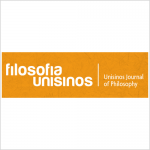Democracy and political morality in Kant’s philosophy of law: principles for a foundation of judicial review
Vol 13, No 2 (2012) • Filosofia Unisinos - Unisinos Journal of Philosophy
Autor: Delamar José Volpato Dutra
Resumo:
The study detects a tension in constitutional democracies, as they mix elements arising from liberalism, republicanism and democracy. Two authors are illustrative of this tension. On the one hand, Kant did not see any problem in the combination of republicanism and liberalism, but thought that democracy is incompatible with liberalism. Habermas, on the other hand, sees no tension between republicanism and democracy, but rather between republicanism – which for him is synonymous of constitutional democracy – and liberalism, which is a tradition of thought going back to Carl Schmitt. The text discusses basically how Kant integrates normative elements of law into his philosophy of law, without, however, establishing effective mechanisms to address the deviations from the proposed normative standards.
ISSN: ISSN: 1984-8234
Texto Completo: http://revistas.unisinos.br/index.php/filosofia/article/view/fsu.2012.132.04
Palavras-Chave: Kant, liberalism, republicanism, democracy,ju

Filosofia Unisinos - Unisinos Journal of Philosophy
The journal Filosofia Unisinos - Unisinos Journal of Philosophy is published once every four months by Universidade do Vale do Rio dos Sinos.
Articles must be original, unpublished, and not under consideration for publication anywhere else and can be written in Portuguese, English or Spanish
Filosofia Unisinos - Unisinos Journal of Philosophy prints articles, translations and critical book reviews. It also reprints papers that are considered fundamental to the area when authorized written permission is given by the original publisher.
